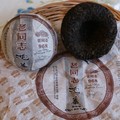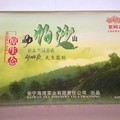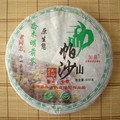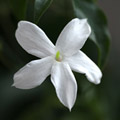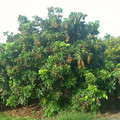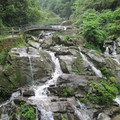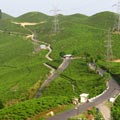Haiwan Tea Factory - Teas
Tea by type
Tea by region
Tea by years and other
968 *Yunnan Haiwan Pu-erh Tea Old Comrade LaoTongZhi * Pu erh Tuocha Ripe /Shu 100 grams
 0 reviews
0 reviews2008yr 968 *Yunnan Haiwan Pu-erh Tea Old Comrade LaoTongZhi * Pu erh Tuocha Ripe /Shu 100 grams
2006 Haiwan Organic Pasha Tea Brick 500g
 1 review
1 reviewThis brick was stored in Kunming since 2006, it was made by using the best raw materials Haiwan Tea Factory could find. A few factors make this tea brick very expensive. 1. it's rare as it's hard to get it nowadays at the marketplace; 2. it's a certified 'Organic'; 3. its raw materials were harvested from ancient tea trees; 4. it's big 500g heavy, the equivalent of two standard 250g bricks, 5. it's a collector's item. Once you considered all of these factors, you may understand why...
2006 Haiwan Certified Organic Pasha Mountain
 1 review
1 reviewTall and straight forest - Meng Pasha Pasha in the Aini language means tall and straight forest. According to local people, Pusha was settled more than 300 years ago by people from the Jinghong and Damenglong area of Xishuangbanna. At that time this area had no villages or cultivated land within 10 kilometers and was dominated by vast mountains filledwith giant ancient tea trees. The Aini people, through foresight and diligent work,created their home on this land, relying on tea to earn a...
Theme
Quotes
„The terms "Xiao shu" (small tree) and "tai di" (terrace plantation) are often interchangeably used, but they should be given separate meanings. "Tai di" connotes high intensity farming, with the entire slope cleared & terraced to plant hedgerows & use of pesticide & fertilizer. But in many gu shu growing villages, there are also new tea plantations which are too young to be called gu shu (ie. less than 100 years old), but they aren't exactly "tai di" either. Many of these plants are growing next to old trees, in a bio-diverse forest clearing, with lots of space around them, not all are sprayed & fertilized. In the future, they will grow into "gu shu", until then we should call them "shen tai xiao shu" (naturally grown small trees)“
Latest posts
07.06.2025 @ 07:48:53 - lalo233:
The unforgiving landscapes of Arrakis in Dune: Awakening demand a mastery of combat....
07.06.2025 @ 07:48:50 - lalo233:
The unforgiving landscapes of Arrakis in Dune: Awakening demand a mastery of combat....
01.01.2016 @ 18:14:35 - Eternal Spring:
WeRateTea.com wish you all the best for 2016!...
07.12.2015 @ 09:07:02 - sypalino:
I decided to taste this tea 2 weeks after delivery. The cake is lightly pressed, so...
09.11.2015 @ 21:58:19 - Eternal Spring:
Comparison of 2013 Bada Pu-erh.sk with <a...
09.11.2015 @ 09:34:07 - Eternal Spring:
Lao Yu 2013 is now about 2,5 years old tea and out of this 1,5 year stored in Europe....
09.11.2015 @ 09:33:11 - Eternal Spring:
Comparison of all three Lao Yu is now done :)
15.10.2015 @ 11:06:37 - Eternal Spring:
2015 Chawangpu Collection – I can only tell, that all teas are very good :)
09.10.2015 @ 10:31:19 - Eternal Spring:
It was quite long and difficult tasting to make a decision… There is still quite...
24.01.2015 @ 16:55:57 - Eternal Spring:
WeRateTea.com wish you all the best for 2015!...
Tea by region
We will help you with tea selection.
Do you like quality loose tea?
We will help you to find the right one for you. Be inspired by tea ratings of other tea lovers. Rating stars could help you.


Review your cup of tea.
Review the tea you are drinking and help other tea lovers to find the right cup of tea.






 Shops
Shops
